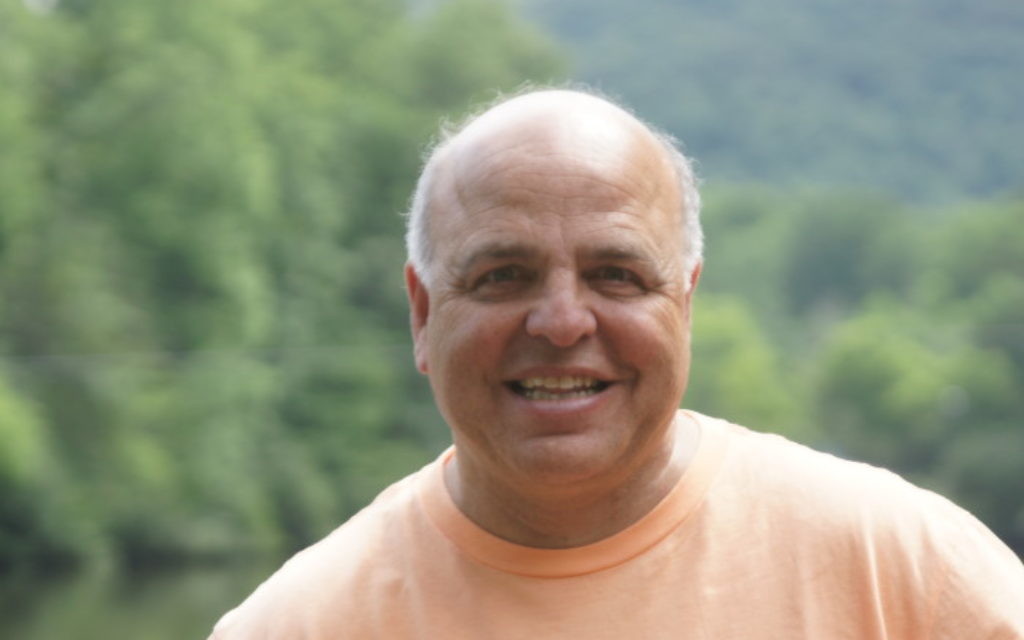Coleman Generations Unite for Harris Celebration
Bobby Harris is being celebrated Nov. 19 for his first 25 years as the director of Camp Coleman, an honor he called “affirming,” but he spent nearly two decades at the Union for Reform Judaism camp in Cleveland before the full impact of his work hit him.
During the summer of 2009, the H1N1 flu was causing public health scares, and Coleman suffered a staff outbreak just before the first camp session. The night before campers were due to arrive, Coleman tried to call 420 families to tell them to stay home.
“Some of the campers showed up on opening day, and they were at the gate crying,” Harris said. “There was a major sense of anxiety, major sense of loss and sadness.”
Get The AJT Newsletter by email and never miss our top stories Free Sign Up
Coleman wound up canceling the session. The camp crammed 100 of those kids into its second session, but it lost more than 300 campers for the summer. Harris worried whether they would return.
The camp rallied in 2010 to be stronger than ever and remains at capacity with more than 900 campers over two sessions each year.
“You wake up, and you realize just the importance of what you do, what we do, and that really galvanized me,” Harris said. “I wasn’t going to let Coleman fall back.”
The camp — founded as a summer leadership retreat for high-schoolers in 1962 and converted to a full youth summer camp two years later under its first director, Allan Solomon, who rapidly grew it from 37 kids the first year — has rarely taken a backward step since Pittsburgh native Harris decided to move south in 1991.
Harris, who had been a camp counselor, first became a camp director at age 25 at Camp Judaea Sprout Lake in Verbank, N.Y. Leaning toward a career in Jewish community centers, he moved to Philadelphia, where he met a veteran of the Palmach and Israel’s first Olympic team, Arie Gluck, the director of Reform Camp Harlam.
Gluck recruited him to return to camping. Harris toured Atlanta and Coleman with Jan Epstein and loved the camp.
When he took the job, the first rabbi he called was Coleman alumnus Steve Lebow at Temple Kol Emeth, which was sending 33 kids a year to the camp.
Coleman was a great place that had fallen on tough economic times, Rabbi Lebow said, but it took Harris less than a year to get the finances in order and start growing.
He praised Harris’ hiring of good people, positivity, and love of Judaism and of working with kids. “Bobby loves his job, and it shows. When a person loves what he does, it’s infectious.”
“Bobby comes at it for all the right reasons,” the Marcus Foundation’s Jay Kaiman said, explaining that Harris doesn’t care just about the camp. “He cares about the Jewish community.”
The Marcus Foundation helped with a key infrastructure improvement, the construction of a dining hall big enough to accommodate all the campers at once. In the old facility, which was converted to an arts center, the campers ate in two shifts, making Coleman feel like two separate camps, Harris said.
“It still is a tight-knit community,” Harris said. “It’s not too big.”
The unity enhanced by the dining hall fits with Harris’ powerful vision of Jewish peoplehood, said Paul Reichenbach, Harris’ boss as the Union for Reform Judaism’s director of camping and Israel programs. He cited Coleman’s introduction of two counselors from Uganda’s Jewish community in 2015; this past summer, five other camps followed Harris’ lead in hiring Ugandans.
Reichenbach said Coleman’s deep connection to Israel also has influenced the URJ camp movement. Harris instituted a program in 1994 to send 11th-graders to Israel in preparation for counselor training the next year, and Israelis return to the camp each year to serve as counselors and led a programming overhaul that integrated Israel into activities throughout a camp session.
“Israel is a really big part of our focus,” said Harris, who sees the 11th-grade Israel trip as an opportunity for Coleman to grow and enhance its connection to teens if, through scholarships, he can lower the cost to families so that it is closer to that of a session at Coleman.
Bert Rosenthal, who was a second-year Coleman counselor when Harris arrived, led the first Israel trip in 1994. Now his daughter is Coleman camper who will celebrate becoming a bat mitzvah there next summer.
Rosenthal, a Temple Sinai member, will be the next chairman of the camp’s board, but first he is co-chairing the Harris celebration, “A Midsummer Night’s Dream,” which will include a Havdalah service led by Sinai Bunzl Family Cantorial Chair Beth Schafer and a performance by Coleman alum Adam Lowitt of “The Daily Show.”
At least 200 people are expected to attend, coming from as far away as Israel, with the money raised supporting Coleman’s arts programming. Long term, Coleman has a plan for a performing arts center, which fits with Harris’ hope to use the camp all year for retreats for teens with interests such as comedy, filmmaking and Jewish cooking.
Harris is “such a committed and dedicated informal Jewish educator,” Reichenbach said. “Young people are inspired by him to make deep Jewish connections. In 25 years, he has launched thousands of Jewish journeys.”
Who: Bobby Harris
What: Celebration of a quarter-century at Camp Coleman
Where: Temple Emanu-El, 1580 Spalding Drive, Sandy Springs
When: 7:30 p.m. Saturday, Nov. 19
Tickets: $120 over age 30, $75 30 and under; www.campcoleman.org/celebration






comments